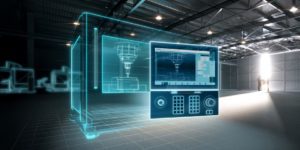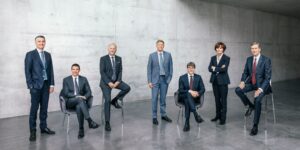Dongbu Steel Commissions Two Plants With Consteel Technology
Leading metals and mining technology services provider Tenova SpA (Milan, Italy) announced that two plants built with its proprietary Consteel technology have commenced operations in South Korea. According to a report by Industrial Info Resources (Sugar Land, TX), the plants…
Posted: January 5, 2010
Leading metals and mining technology services provider Tenova SpA (Milan, Italy) announced that two plants built with its proprietary Consteel technology have commenced operations in South Korea. According to a report by Industrial Info Resources (Sugar Land, TX), the plants are part of a two million-ton-per-year hot mill complex developed at Asan Bay by Dongbu Steel Company Limited (Seoul, South Korea). The first Consteel plant commenced operations in July, while the second plant was commissioned in August. Both plants also have obtained provisional acceptance certificates.
Dongbu Steel is part of the Dongbu Group (Seoul), which has business interests that span manufacturing, steel, finance, fine chemicals, metals and engineering. The group is one of the top 10 business houses in South Korea, with an asset base of about $24 billion and annual sales of $15 billion. Dongbu Steel is the fourth-largest steel maker in the world and manufactures cold-rolled and galvanized sheets, wire, bars, pre-fabricated steel structures, pipes, and pre-coated metal sheets.
Each Consteel facility consists of a 110 meter-long pre-heating and charging unit. The pre-heating section includes two water-cooled and four refractory-lined hoods, which recover specific gases and combusts carbon monoxide into carbon dioxide. The charging section consists of two conveyors, which carry Hot Briquetted Iron, scrap and pig iron directly to the electric arc furnace. Project sources state that this technology has several advantages over conventional steel production technologies. The Consteel process reduces plant noise and dust levels and considerably reduces carbon dioxide emissions.
Consteel technology is the only technique used in commercial operations that is based on a continuous pre-heating process. The process directly feeds metal to the electric arc furnace and controls emissions. The metal feed is first loaded to the conveyor system from rail wagons or scrap yards. The load is then transferred to the electric arc furnace. During the process of transfer to the electric arc furnace, the metal is pre-heated by furnace gas. The liquid steel in the furnace melts the feed continuously, while the furnace gases are sent to the fume-clearing section. Here, carbon monoxide is combusted and converted to carbon dioxide. The flue gas heat is used to produce steam and hot water in a cogeneration system.
The technology eliminates movement of scrap and simplifies the logistics process. Maintenance and operating costs are very low since the equipment and machinery usage is limited in comparison with traditional methods. Consteel technology is emerging as a more reliable, safer and cost-effective process worldwide. Globally, there are 36 Consteel plants with a total capacity of 30 million tons per year. Company sources indicate that in the last 20 years, none of these plants have been refurbished or replaced. According to reports, there are 10 Consteel plants under construction.
In a related development, Dongbu Steel completed the construction of an electric arc complex at Dangjin, about 130 kilometers from Seoul. The project, with a capacity of 3 million tons per year, is considered the biggest in the world. Until recently, the 2.5 million-ton-per-year facility operated by Nucor Corporation (Charlotte, NC) was the world's largest electric arc furnace.
According to the World Steel Association (Brussels, Belgium), during January to October 2009, crude steel production in South Korea was about 40.11 million tons. During this period, global crude steel production was about 979.2 million tons.














